Benjamin Netanyahu ruled Israel as a man of many faces
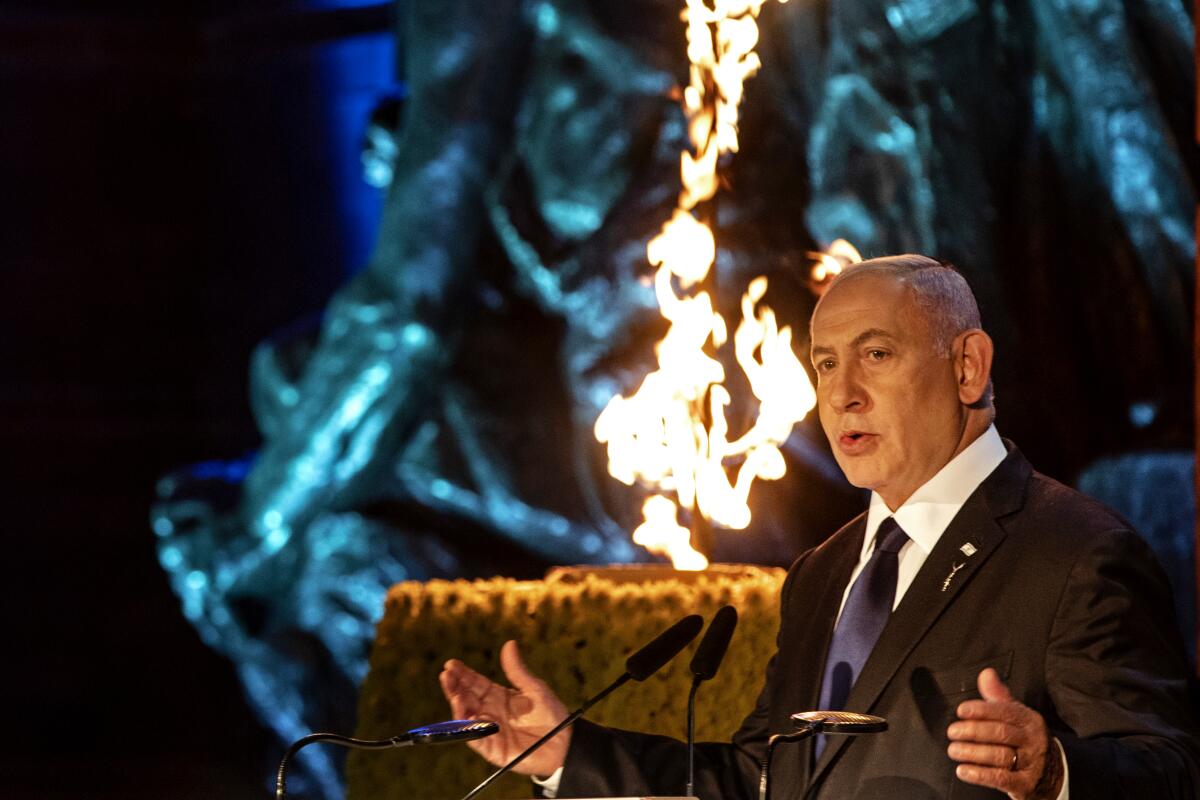
JERUSALEM — Over the last three decades, Israel and the world have seen many sides of Benjamin Netanyahu.
There was the smooth speaker of American English who became a familiar face on international media as Iraqi Scud missiles menaced Israel in 1991. The political wunderkind who won the prime minister’s job at 47, the youngest person ever to do so. The confident, charismatic leader who basked in ardent followers’ chants of “king of Israel!”
There was also the ambitious opposition leader who ruthlessly whipped up fury against his rival, warrior-turned-peacemaker Yitzhak Rabin, who was assassinated by a far-right zealot in 1995. The prime minister who dimmed Palestinian statehood hopes. The angry criminal defendant lobbing insults at judges. The bane of one American president — Barack Obama — and the back-slapping intimate of another, Donald Trump.
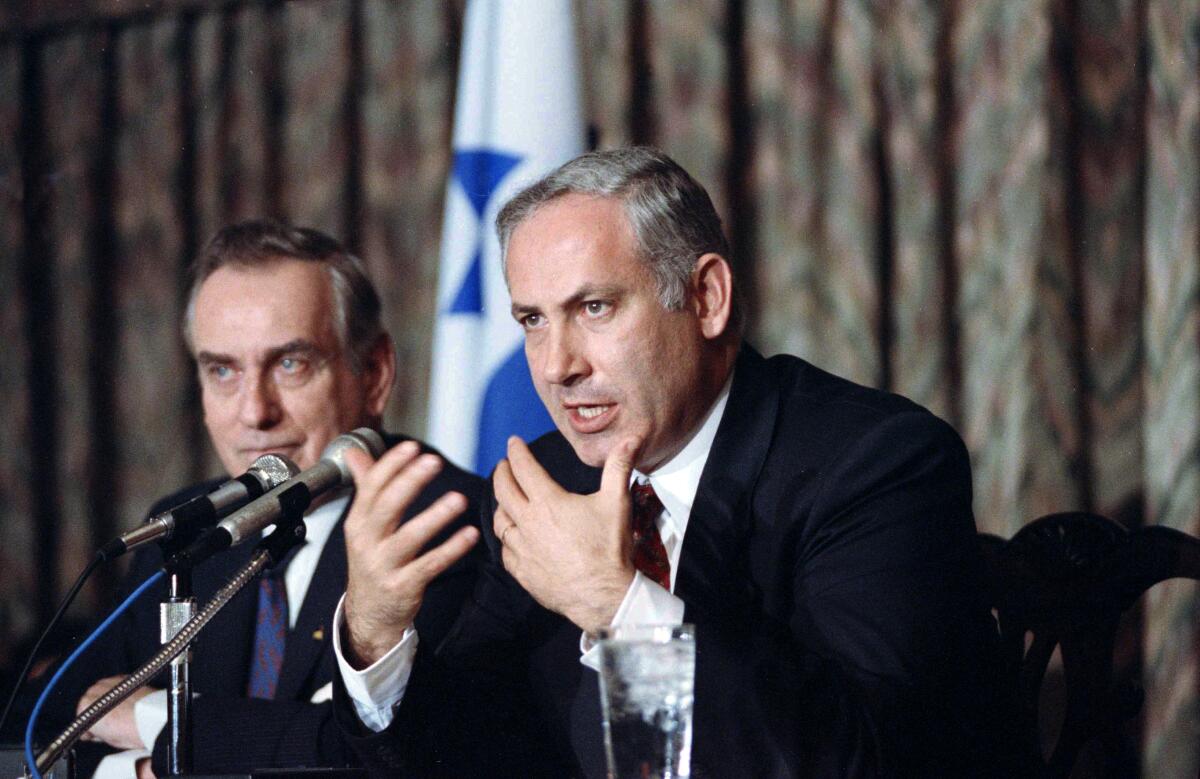
Since Israel’s iconic first generation of founders and builders, no national leader has so imprinted himself on the political landscape and in the popular imagination, both through force of personality and sheer longevity. Netanyahu served a total of 15 years, longer than any other Israeli leader, including the country’s revered first prime minister, David Ben Gurion, whose tenure he surpassed in 2019.
Along the way, Netanyahu inspired almost cult-like devotion but also alienated even many like-minded compatriots — a balance that finally tipped against him Sunday, when the Knesset, or parliament, narrowly voted in a new government led by right-wing nationalist Naftali Bennett, Netanyahu’s onetime protege.
Netanyahu — Hebrew for “God has given,” the family name chosen by his immigrant father — has wandered the political wilderness before. He left the electoral battlefield for a time after a bruising loss in 1999, but a decade later — buoyed by a stint as a reformist finance minister — he was back in power.
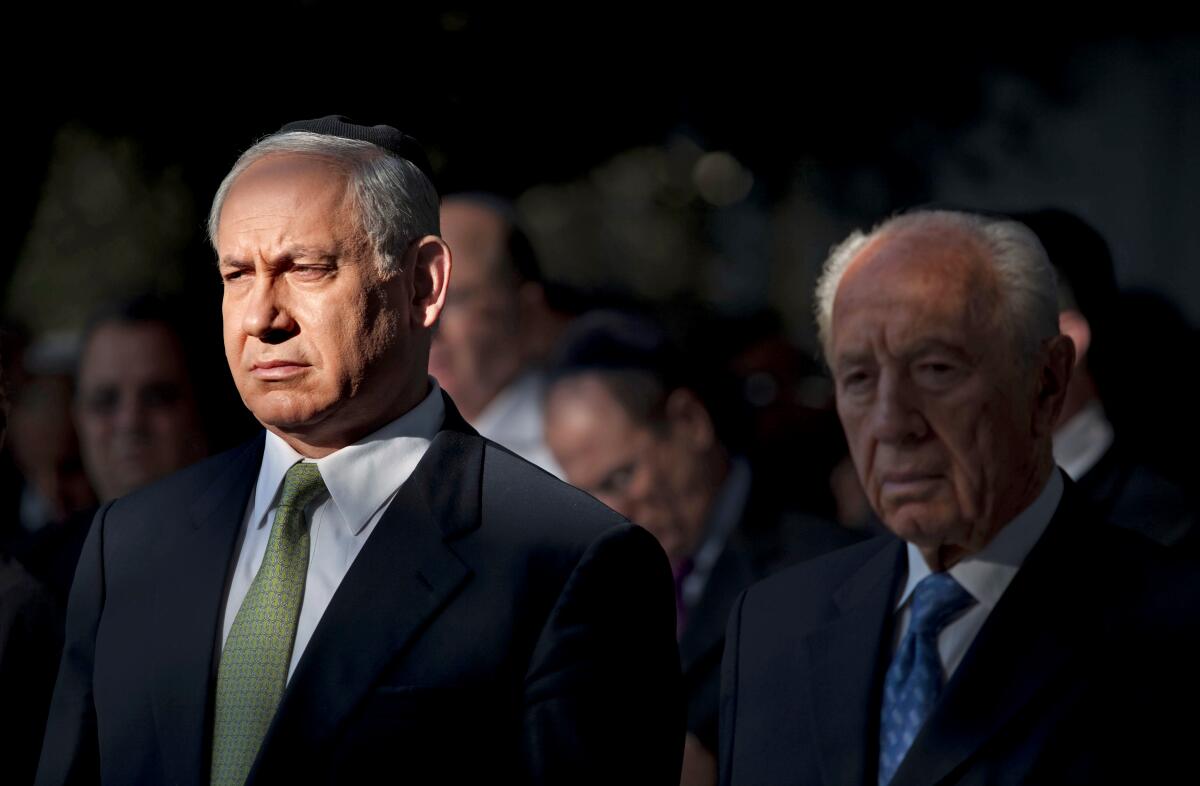
Another comeback is always possible, given the fragility of the across-the-spectrum coalition that has supplanted Netanyahu, led by centrist Yair Lapid, who will govern in rotation with Bennett.
But this time around — at 71, on trial for corruption, surrounded by foes who were once his confidants, with his conservative party well aware it could easily have remained in power if it jettisoned him as its chief — Netanyahu, now leader of the opposition in the Knesset, has the aspect of a still-combative but wounded political creature.
“We’ll be back soon!” he told lawmakers in his final speech as prime minister — at least in this incarnation as leader. But his swan-song remarks in the well of the Knesset, as his rivals were about to carry the day, also bore trademark notes of self-aggrandizement and contempt for those he blamed for his downfall.
Many analysts cited profound public fatigue with Netanyahu after an unprecedented string of inconclusive elections — four in two years — that were all fundamentally a referendum on “Bibi,” the nickname by which he is universally known.
During much of his time in office, however, Netanyahu was seen by many Israelis as a strong and competent leader, good for the economy and for national security. He also won wide praise for Israel’s swift COVID-19 vaccine rollout, which is credited with helping bring about a speedy return to normal life.

“He was always the best leader for us — smart, experienced and tough,” said Dan Kamari, 49, who works in real estate in the Tel Aviv suburb of Rishon LeZion. Weeks after sheltering with his wife and three children under 12 while Hamas militants fired thousands of rockets at Israel during hostilities last month, Kamari insisted that no one but Netanyahu could be a true guarantor of Israelis’ safety.
Others saw worrying signs of demagoguery, viewing the prime minister’s tenacious efforts to cling to power — and his virulent lashing out at political enemies — as solely self-serving.
“I’m scared for our democracy, after everything he’s done,” said 18-year-old Tair Bloch-David, who will soon embark on her military service. “It’s not just disagreeing with him politically — in my family, there is someone from every political party, and our Shabbat dinners are like, wow — it’s that I really don’t trust him to think of the country instead of just himself.”
Always a deft political operative, Netanyahu for years demonstrated just enough of a show of willingness to consider a two-state solution — the creation of a Palestinian state alongside Israel, favored by the United States and the international community — to skirt broad opprobrium on the world stage, even while carefully cultivating a status quo that grew worse over time for Palestinians.
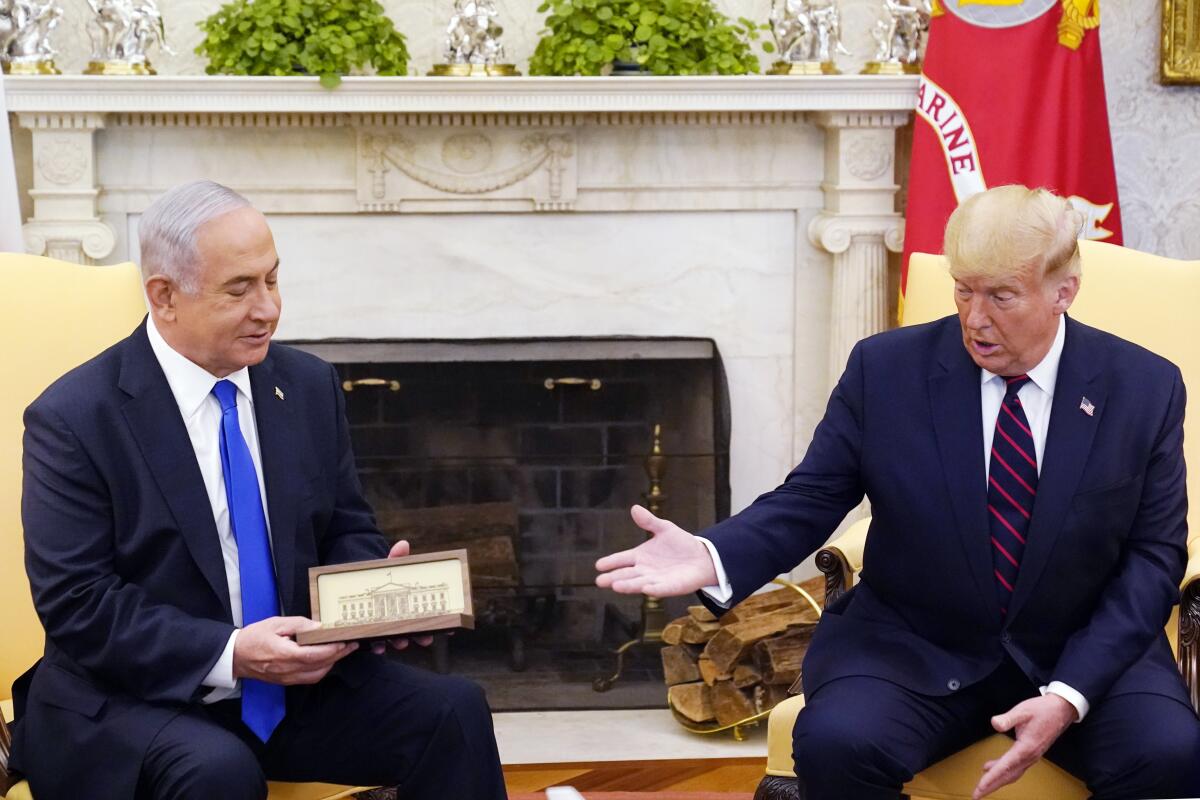
His actions — particularly during Trump’s tenure but well preceding it — systematically narrowed the window for a viable Palestinian state, with East Jerusalem as its capital, analysts said. Under Netanyahu, the rate of population growth in Jewish settlements in the West Bank, considered illegal under international law, was more than double that in Israel proper, according to population figures.
“He killed the peace process,” Israeli political science professor and author Tamar Hermann said bluntly.
Trump-era moves by Washington — the United States moving its embassy to Jerusalem, slashing aid to Palestinians and putting forth a Mideast plan heavily weighted toward Israeli wishes — were essentially political gifts from Trump to Netanyahu, she said, but ones that merely cemented his existing inclinations.
“If you are someone who is against the two-state solution, then you’re happy with him,” said Ofer Kenig, a researcher with the nonpartisan Israel Democracy Institute. “Bibi really, really succeeded in putting that to bed.”
In recent years, Netanyahu presided over a broad domestic Israeli shift to the right, highlighted by the enactment of a controversial 2018 law proclaiming that the right of national self-determination in Israel was unique to Jews. The measure also established Jewish settlement as a “national value,” and downgraded the status of the Arabic language, in what was seen as a slap at Palestinian citizens, who make up a fifth of the country’s population of 9 million.

Palestinian citizens of Israel often felt dehumanized, said Amal Jamal, a political scientist at Tel Aviv University whose sphere of research includes the country’s Arab minority.
“He has a very narrow black-and-white image of reality,” Jamal said. “With him, it’s ‘you are with me, or you are my enemy. You submit, or I have the right to obliterate you.’”
Still, some give Netanyahu credit for a measure of social inclusiveness, particularly in the political empowerment of Jews of Middle Eastern descent, or Mizrahim, who long chafed under what they saw as the elitism of Jews of European descent, or Ashkenazim.
“Although totally Ashkenazi himself, he gave a lot of pride to non-Ashkenazim, created an atmosphere in which they felt much more a part of the decision-making, and found a place in the cultural sphere,” said Hermann.
Many observers believe Netanyahu harmed Israel’s standing in Washington with his assiduous courtship of Republicans, eroding what had always been a bipartisan relationship with Israel.
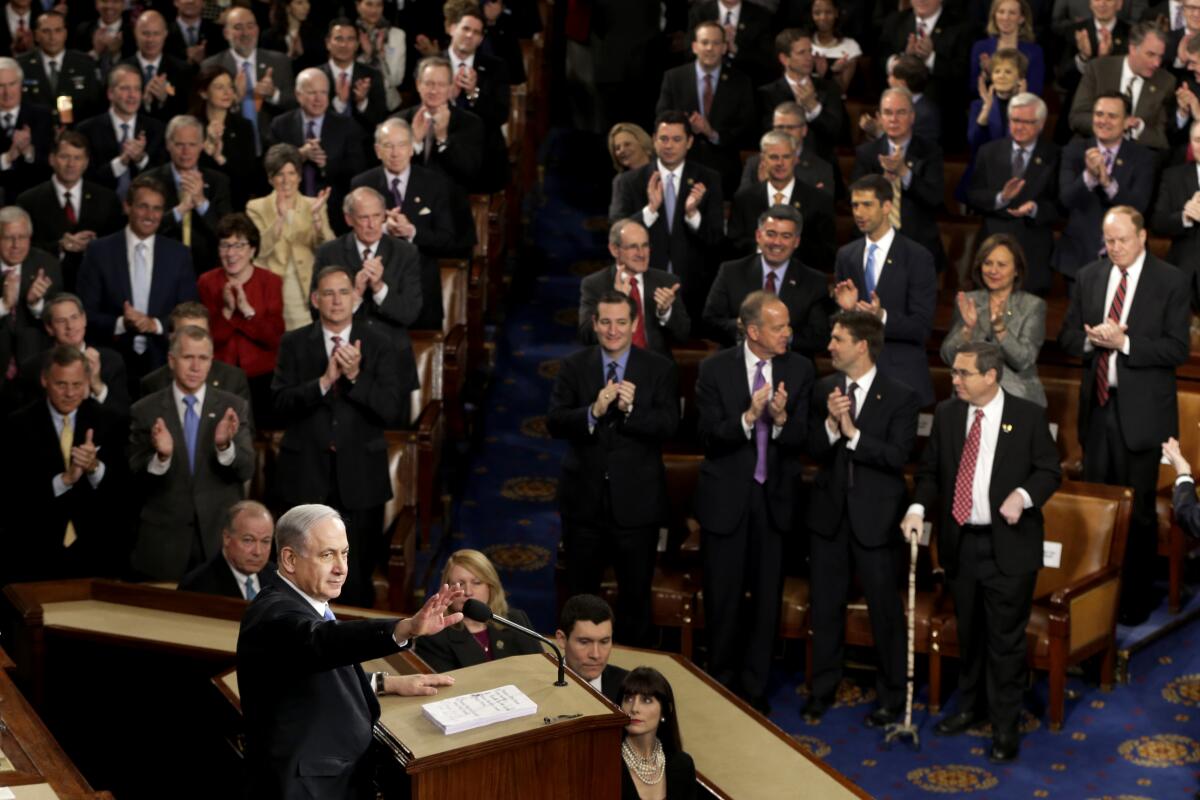
That pattern intensified under Trump but dated back at least to 2015, when the Israeli leader smashed diplomatic protocol and used an address to a joint session of Congress to rail against then-President Obama’s efforts to strike a nuclear accord between world powers and Iran.
“I think he damaged Israeli interests with that,” said political scientist Kenig. “He really burned bridges vis-a-vis the Democratic Party, and with some in the U.S. Jewish community.”
Netanyahu and his allies have railed against the new government with something verging on biblical fury. In his final days in power, Netanyahu mused darkly on Facebook about a Talmudic account of malefactors working to weaken “the spirit of the people.”

Rabbinical leaders aligned with the prime minister also invoked apocalyptic language. “The names of the wicked shall rot,” declared Moshe Gafni, who leads the small United Torah Judaism party, referring to Bennett and Lapid.
Even if the handover of power stays on a peaceful track, Netanyahu is a famous holder of political grudges and unlikely to cede any courtesies to incoming leaders, despite his long acquaintance with them.
In 2009, as soon as Netanyahu was tasked with forming a new government, his predecessor, Ehud Olmert, “ordered all intelligence organizations and the chief of staff to provide his successor with free access to all material,” journalist Yossi Verter wrote Friday in the Haaretz daily newspaper.
Bennett, he said, “hasn’t even gotten so much as a phone call.”
Many commentators believe that, both at home and abroad, Israel’s image and identity are bound up tightly with Netanyahu because the prime minister was such a well-known and commanding figure for so long. Now, they say, disentanglement may take time.
“Netanyahu is not Israel,” wrote Yaakov Katz, the editor in chief of the Jerusalem Post. “And Israel is not Netanyahu.”
More to Read
Sign up for Essential California
The most important California stories and recommendations in your inbox every morning.
You may occasionally receive promotional content from the Los Angeles Times.










